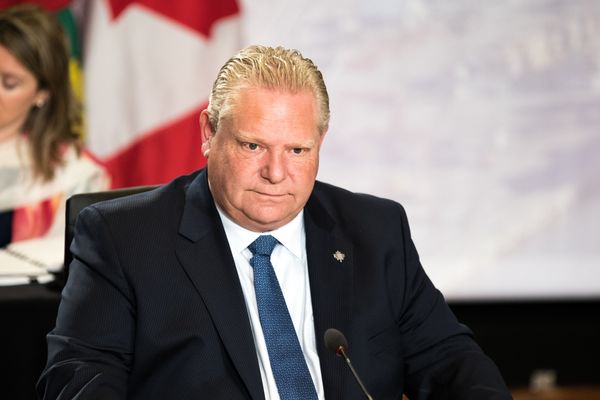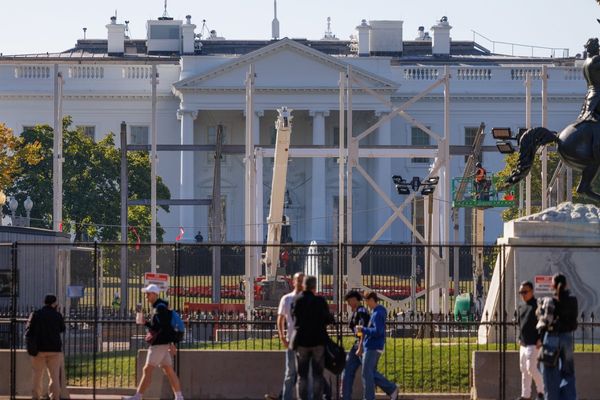Liberal groups in Texas _ locked out of power in Austin, the state capital _ are turning to the state's largest Democratic cities to advance their policy agenda in Texas this fall.
In Dallas and San Antonio, labor organizers are pushing for November ballot initiatives that would require businesses to give their workers paid leave to care for themselves or family members who are sick.
Roughly 40 percent of Texas workers do not have access to paid sick leave, according to a report this month from the Austin-based Center for Public Policy Priorities. Hispanic, low-income and part-time workers were among the least likely to have paid sick leave, according to the report.
Paid sick leave initiatives are popular nationwide among backers of organized labor as a benefit to workers and a means to push back against states' anti-union laws.
They also are the latest tactic of a power struggle between Texas' Republican-controlled government, which prides itself on its close ties to business, and the state's largest Democratic-controlled cities.
Tension between Texas and its big cities boiled over last year when San Antonio, Austin, Dallas and Houston unsuccessfully sued the state to stop a ban on sanctuary cities.
"The ability (of cities) to be able to govern ourselves is going to be the next big battle," said Mary Moreno, spokeswoman for the Texas Organizing Project, which collected signatures to get the initiatives on ballots in Dallas and San Antonio.
"Somebody who lives in Harris County or San Antonio should be able to say, 'this is what I want my local government to do,' without the state coming in and interfering,'" she said.
Even with high Democratic enthusiasm in midterm elections this November, big-ticket electoral victories remain a reach for Democrats in Texas. The state hasn't elected a Democrat statewide in more than two decades.
The ballot initiatives, which are supported by national and local labor groups, are intended to help grassroots organizers turn out low-propensity and minority voters in some of the state's most Democratic pockets.
Of the five congressional seats Democrats are targeting in 2018, Reps. Pete Sessions and Will Hurd, both Republicans, represent parts of Dallas and San Antonio, respectively. Democrat Hillary Clinton carried both districts in 2016.
"People feel disenfranchised ... this shows the direct correlation between their vote and their lives," said Moreno, whose group focuses on getting low-income and minority citizens to vote. "Paid sick (leave) is going to help us get people to the polls in Dallas" and San Antonio.
Tarrant County, voted for Donald Trump in 2016, is not targeted by groups pushing ballot initiatives this fall. Fort Worth remains the largest conservatively-led city in the state, and its City Council chose not to join the lawsuit against the state's sanctuary-cities ban last year.
Business groups, some of which sided with big cities in that battle, are firmly opposed to the paid leave initiatives. They say such initiatives would drive businesses out of Texas and unfairly target private businesses, while exempting ones that are unionized.
"This is definitely part of an orchestrated national effort to try to import these policies into Texas to use the regulatory powers of the cities to implement when otherwise they wouldn't be met with much policy success at the legislature or at the ballot box," said Robert Henneke, general counsel for the Center for the American Future at the conservative Texas Public Policy Foundation.
National liberal leaders are optimistic about the initiatives' potential for big political gain in 2018."Democrats have been shut out of power at the federal level, at the state and in a lot of cases at the local level. ... What they have left is (municipal) power and power of the ballot," said Asya Pikovsky, spokeswoman for the liberal Center for Popular Democracy, which supports the initiatives in Texas. "It's an interesting case study in how Democrats can deploy city power to move their priorities.
In Michigan, liberals are close to introducing a ballot measure that would amend the state's constitution to allow, among other provisions, same-day voter registration. In Florida, voters will to decide whether to restore voting rights to many former felons who have served their prison sentences.
On Monday, a coalition of businesses will ask a court to halt implementation of a paid sick leave measure until the state Legislature returns in January. State Attorney General Ken Paxton joined that lawsuit in April. "Our position is that it's already pre-empted by state law," said Henneke, the lead plaintiff on business groups' lawsuit.
San Antonio's paid sick leave initiative faces a different challenge over its signatures, which still must be certified in time to appear on the November ballot.
If any of the measures go into effect, they could be difficult for the Republican-controlled Legislature to unravel.
Republicans would need two-thirds majority support in both chambers �� more than they have �� for a law overturning them to be implemented immediately. Otherwise, the rules could remain in place until the state's new laws take effect in September.
"It would be a mess, it would cause quite a bit of chaos in the year between when these could become enforced and go into effect, until the long-term, when the legislature could pass a law that would claw it back," Henneke said.







